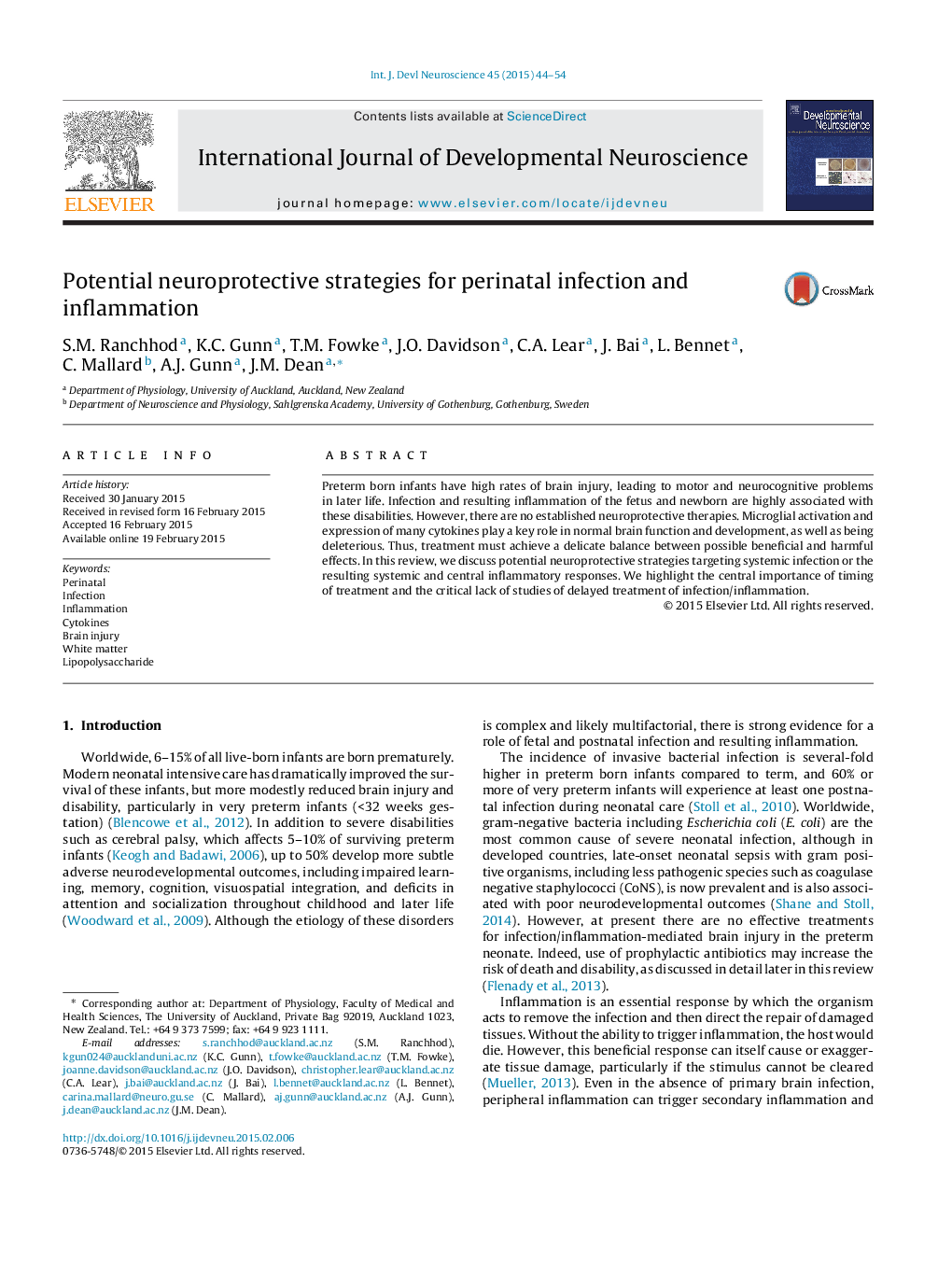| Article ID | Journal | Published Year | Pages | File Type |
|---|---|---|---|---|
| 2785833 | International Journal of Developmental Neuroscience | 2015 | 11 Pages |
•Perinatal infection and inflammation are highly associated with poor neurodevelopmental outcomes.•There are no established therapies to reduce infection/inflammation-induced brain injury.•Nearly all animal studies tested treatments starting before or shortly after infection/inflammation.•There is a considerable need for preclinical studies that test therapies started at clinically realistic times, well after exposure to infection/inflammation.
Preterm born infants have high rates of brain injury, leading to motor and neurocognitive problems in later life. Infection and resulting inflammation of the fetus and newborn are highly associated with these disabilities. However, there are no established neuroprotective therapies. Microglial activation and expression of many cytokines play a key role in normal brain function and development, as well as being deleterious. Thus, treatment must achieve a delicate balance between possible beneficial and harmful effects. In this review, we discuss potential neuroprotective strategies targeting systemic infection or the resulting systemic and central inflammatory responses. We highlight the central importance of timing of treatment and the critical lack of studies of delayed treatment of infection/inflammation.
